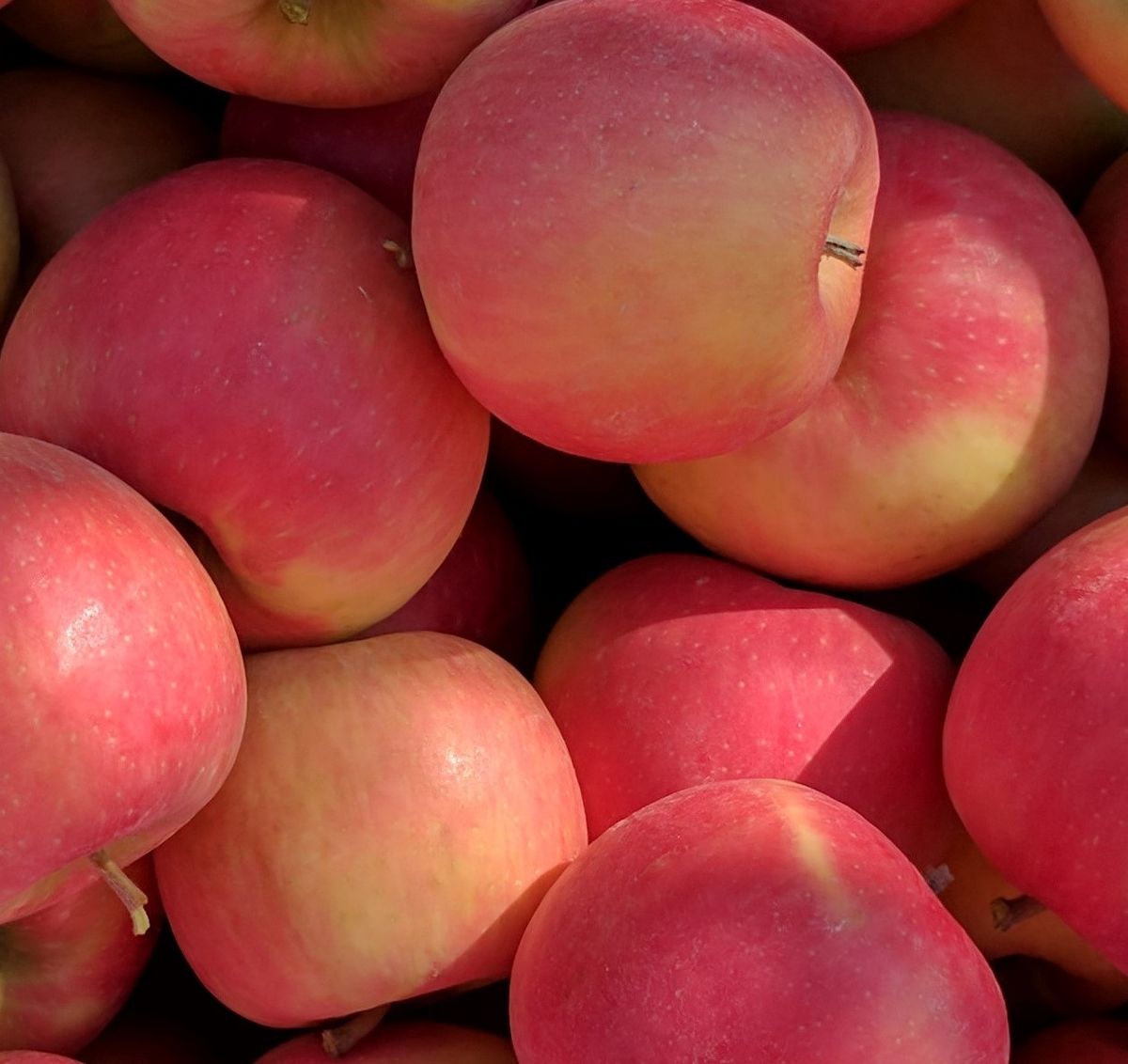How do you name them apples? WSU seeks public input on what to name its new variety

Washington State University needs your help naming its newest apple.
An online survey and contest is now open to rename WA 64, a vibrant, blush-colored apple atop a yellow background known for its balanced blend of sweetness and tartness.
Respondents are encouraged to think of a name that’s punchy and short enough to fit on an apple sticker. Preference is also given to names that allude to the apple itself or the culture behind Washington state or WSU, said Jeremy Tamsen, director of innovation and commercialization for the College of Agriculture, Human and Natural Resource Sciences.
“We really do need something that is unique, distinct, memorable and something that will cause people to remember and say, ‘Hey this is the apple that I really enjoyed eating and I want to buy it again,’ ” he said.
WA 64 is a hybrid of Honeycrisp and Cripps Pink, an apple that falls within the Pink Lady family. It has a firm but crisp and juicy bite, said Tamsen, who describes it as “a nuanced flavor, almost like a rosé where you lean into it and can taste more of it.”
First bred in 1998 in Wenatchee, the WA 64 had been undergoing different phases of evaluation until it was officially released last summer. Trees will be available exclusively to Washington growers in 2026, and the apple is expected to hit grocery store shelves in 2029.
“It’s always great to get to this point, and I’m looking forward to seeing it out for consumers because that’s really the goal, providing that nice, improved eating experience for consumers,” said Kate Evans, horticulture professor and head of WSU’s apple breeding program.
The contest is open to all U.S. residents 18 and older, and it closes May 5. Participants are invited to submit one name suggestion and the rationale behind their idea, along with feedback on whether they have purchased fresh apples in the last few months. Respondents should also shy away from using a mashup of WA 64’s parent names like “pink honey” or “lady crisp,” Tamsen said.
On the line for the contest winner is a charcuterie board engraved with the new apple name, a can of Cougar Gold Cheese, WSU spice rubs and a coveted box of WA 64 apples, among other prizes. Bragging rights are also safely assumed, as the winner is naming a soon-to-be trademarked apple.
WA 64 follows closely behind the ever-popular WSU-bred Cosmic Crisp apple, which was released to Washington growers in 2016 and hit the market in 2019. Alongside the apple, shoppers can find Cosmic Crisp applesauce, juice and hard cider, thanks to a partnership with 2 Towns Ciderhouse, in stores.
Within the first five years of its release, 22 million Cosmic Crisp trees were planted in the state, Tamsen said, though his team doesn’t expect the same speed or volume scale with WA 64.
WA 64 trees will solely be grown in Washington, similar to Cosmic Crisp apples, giving state growers a competitive edge. This is because initial funding for the breeding program stemmed from a levy payment made by Washington apple growers.
Even though the process of getting WA 64 into the hands of consumers is ramping up, Evans said her work doesn’t stop, as the breeding program makes new cross-hybridizations each year.
“The joy from working in apples is that what I see on the tree and (when) I pick that apple, that will be exactly the same product that hopefully we’ll be eating in however many years’ time,” she said.
Revenue from WA 64 tree and apple sales will be divided up among several different areas. Dollars will go toward a consumer marketing campaign, WSU’s Office of Commercialization, the CAHNRS Office of Research, apple growers and to the scientists, including Evans, who brought WA 64 to life, Tamsen said.
“The big message there, in terms of the really complicated distribution, is that there are a lot of people involved in getting an apple to the actual grocery store shelf, and we recognize those people up and down the whole production chain,” he said.